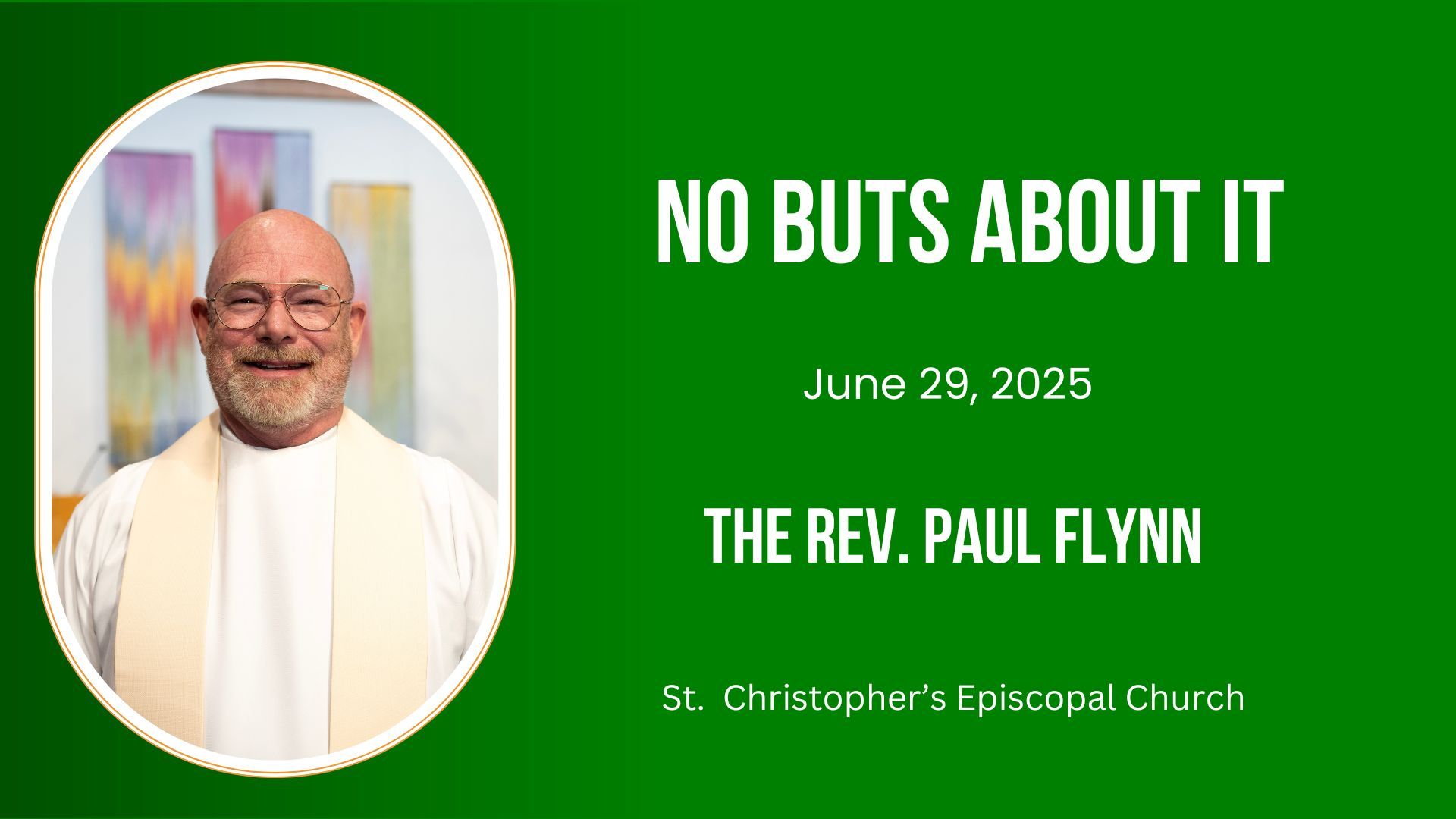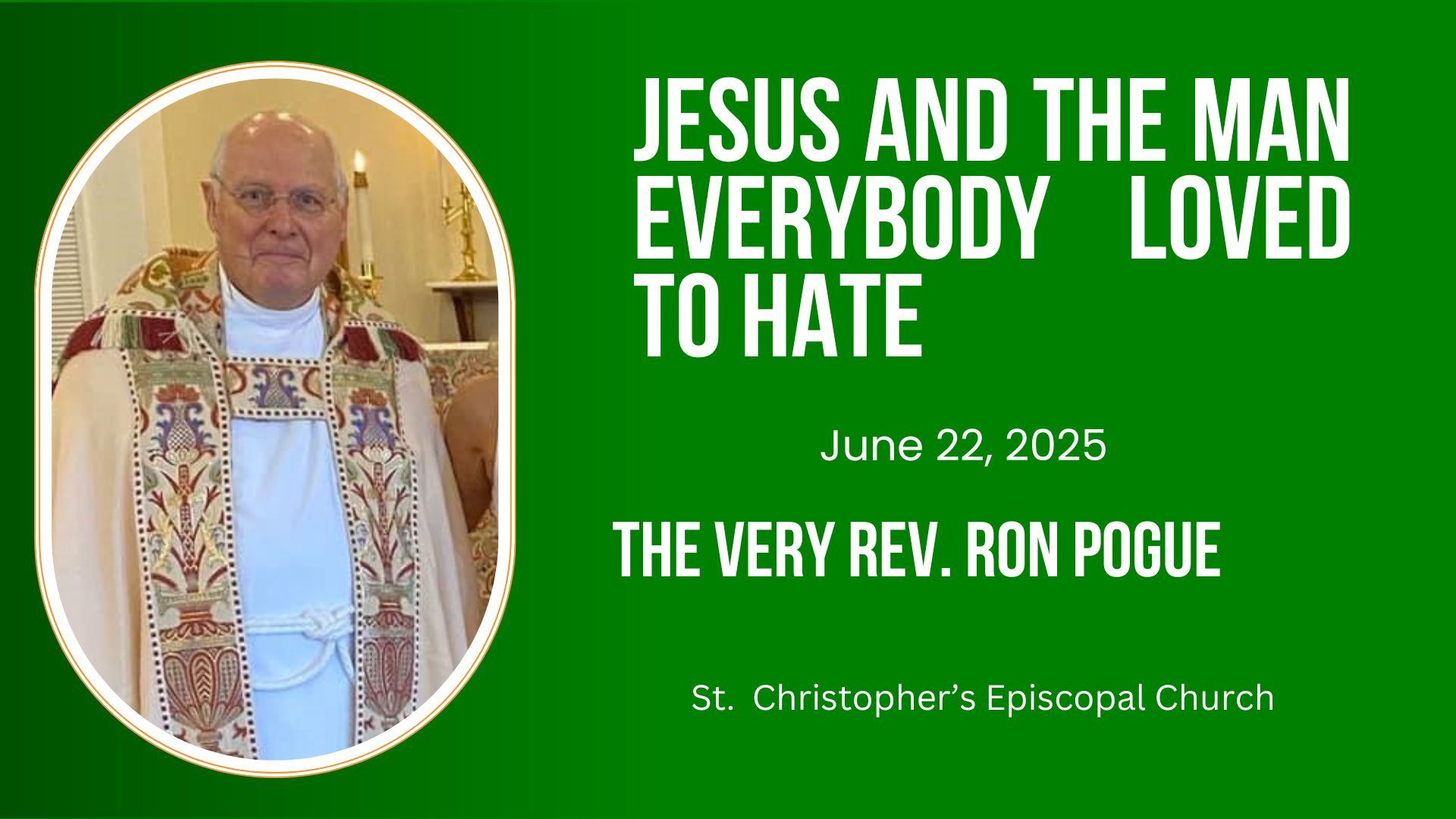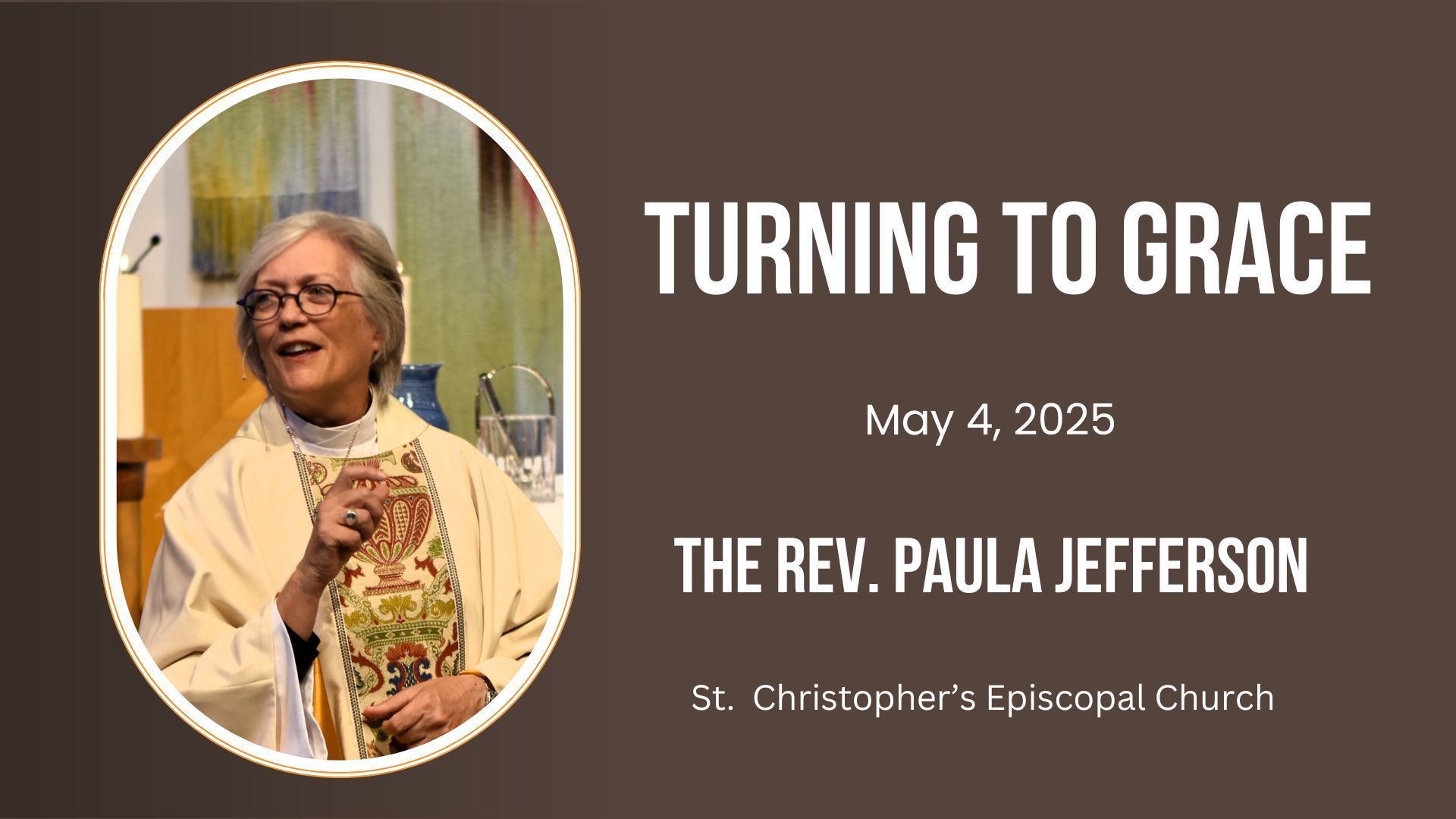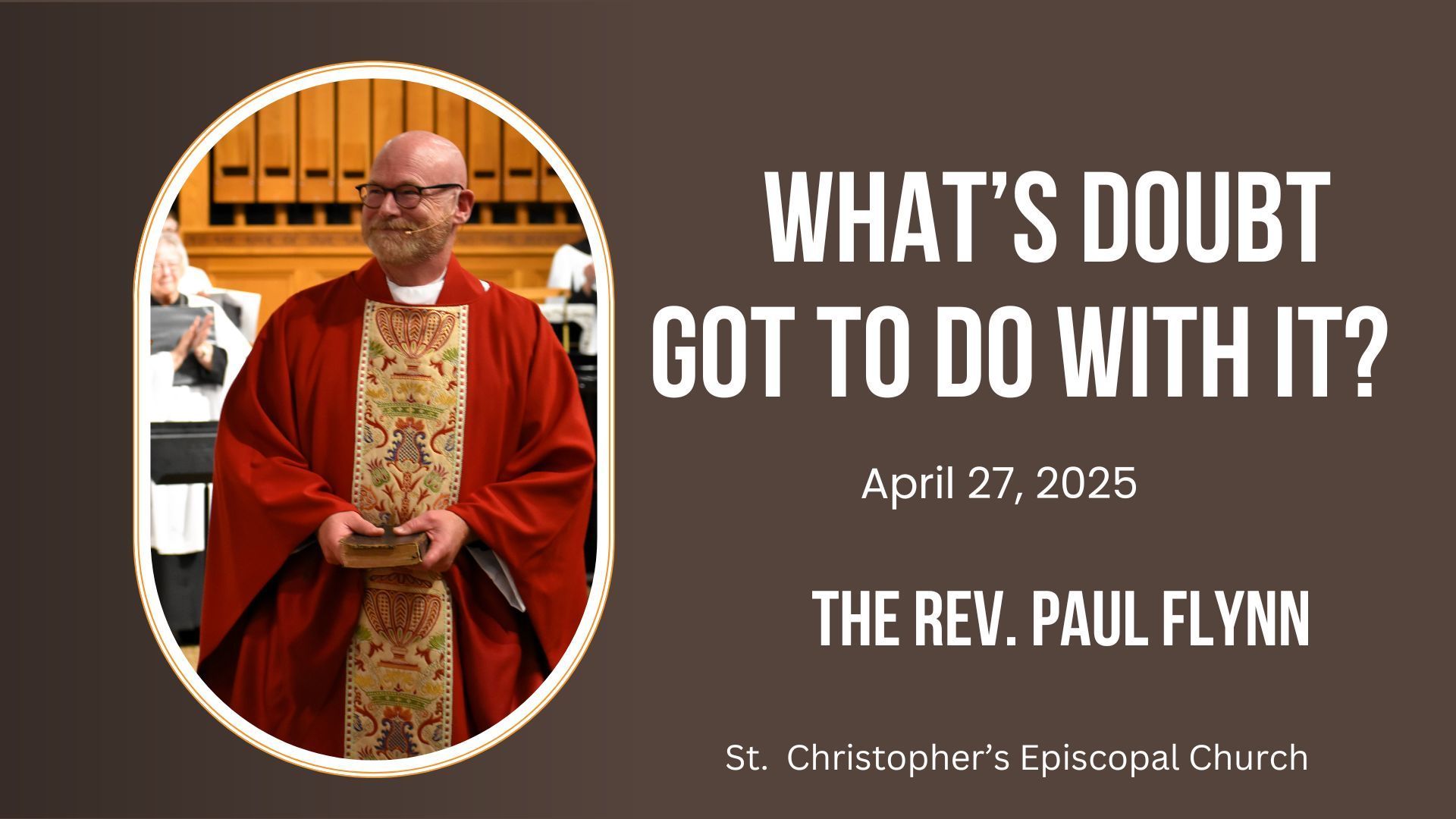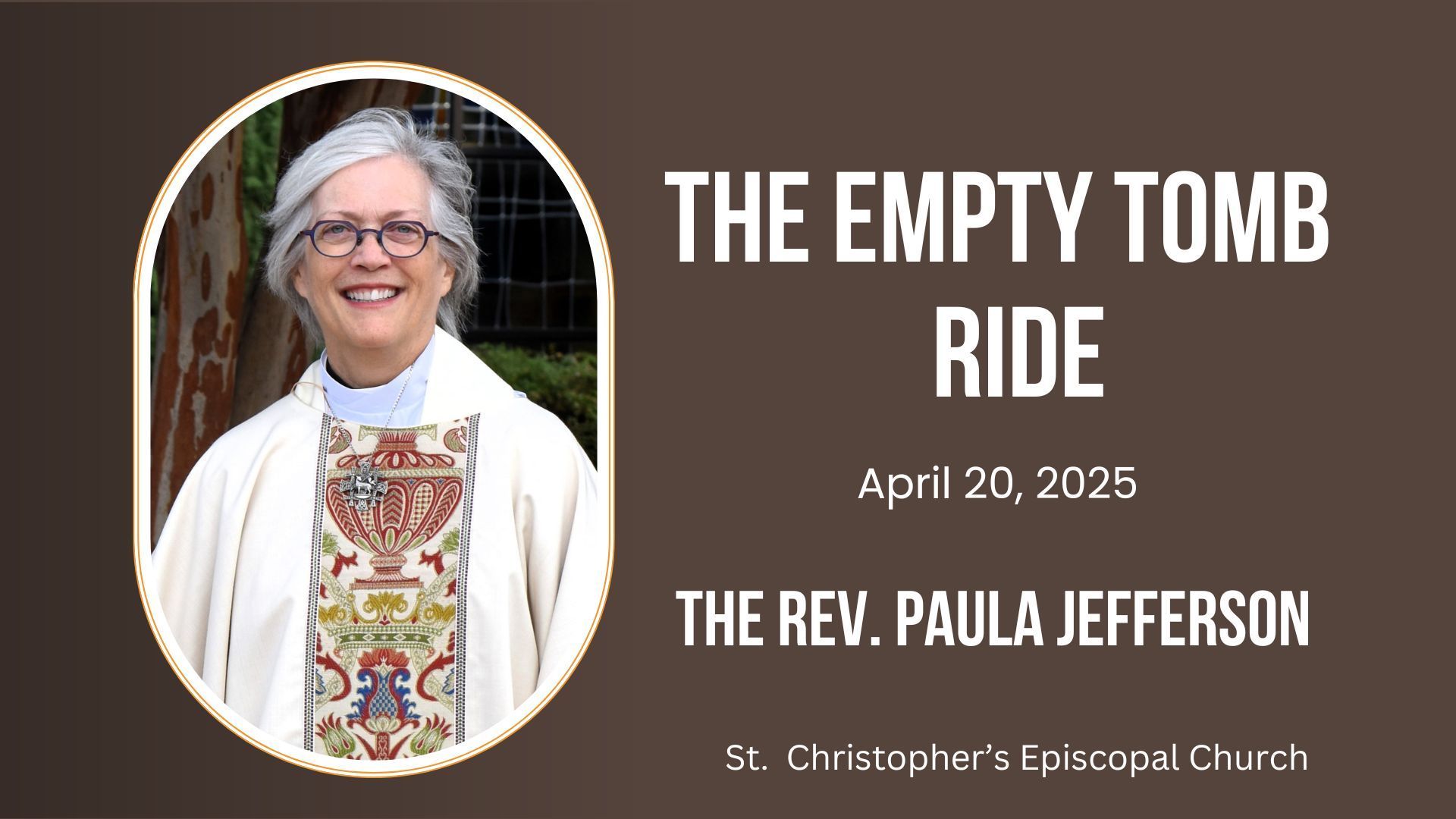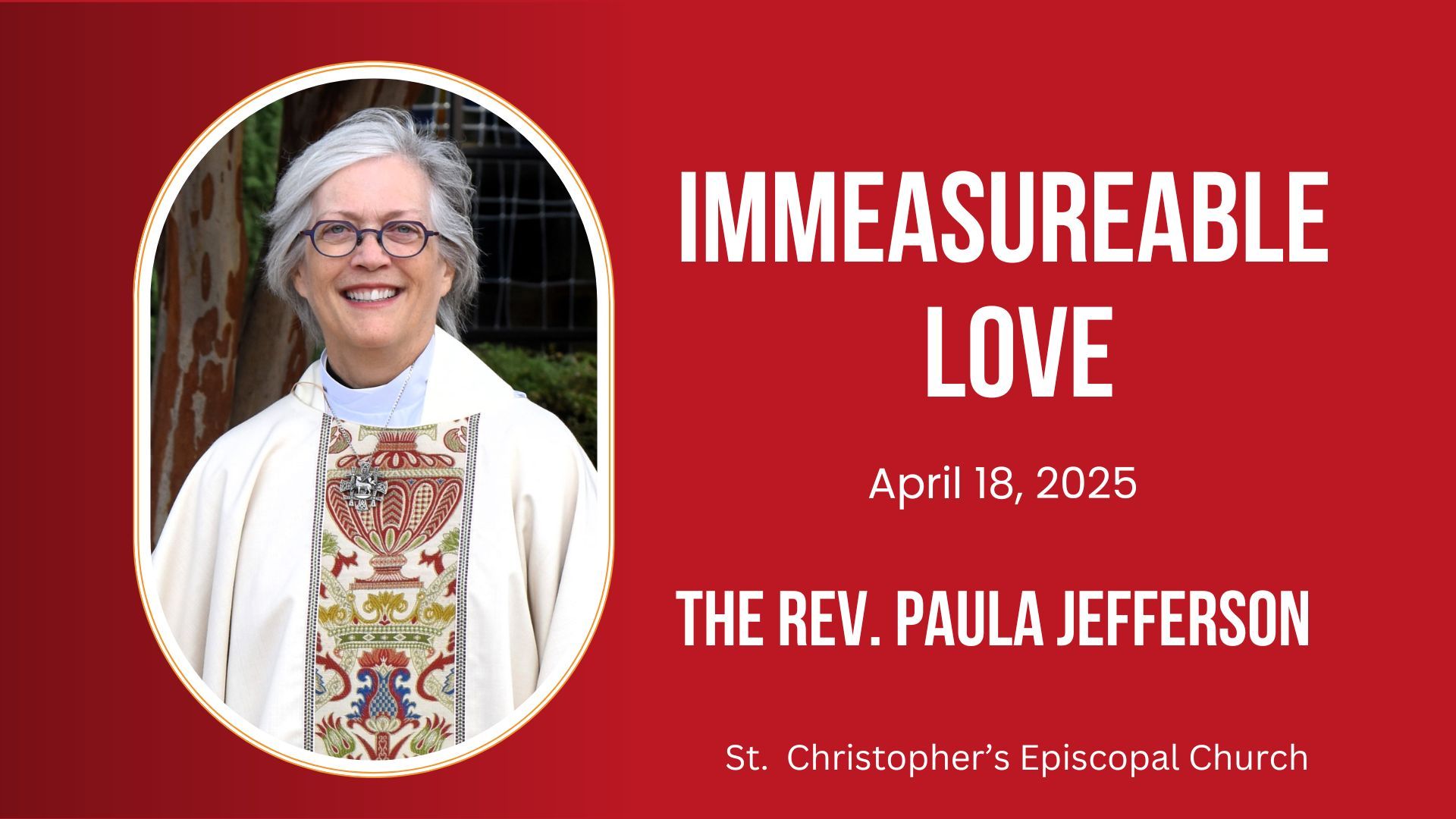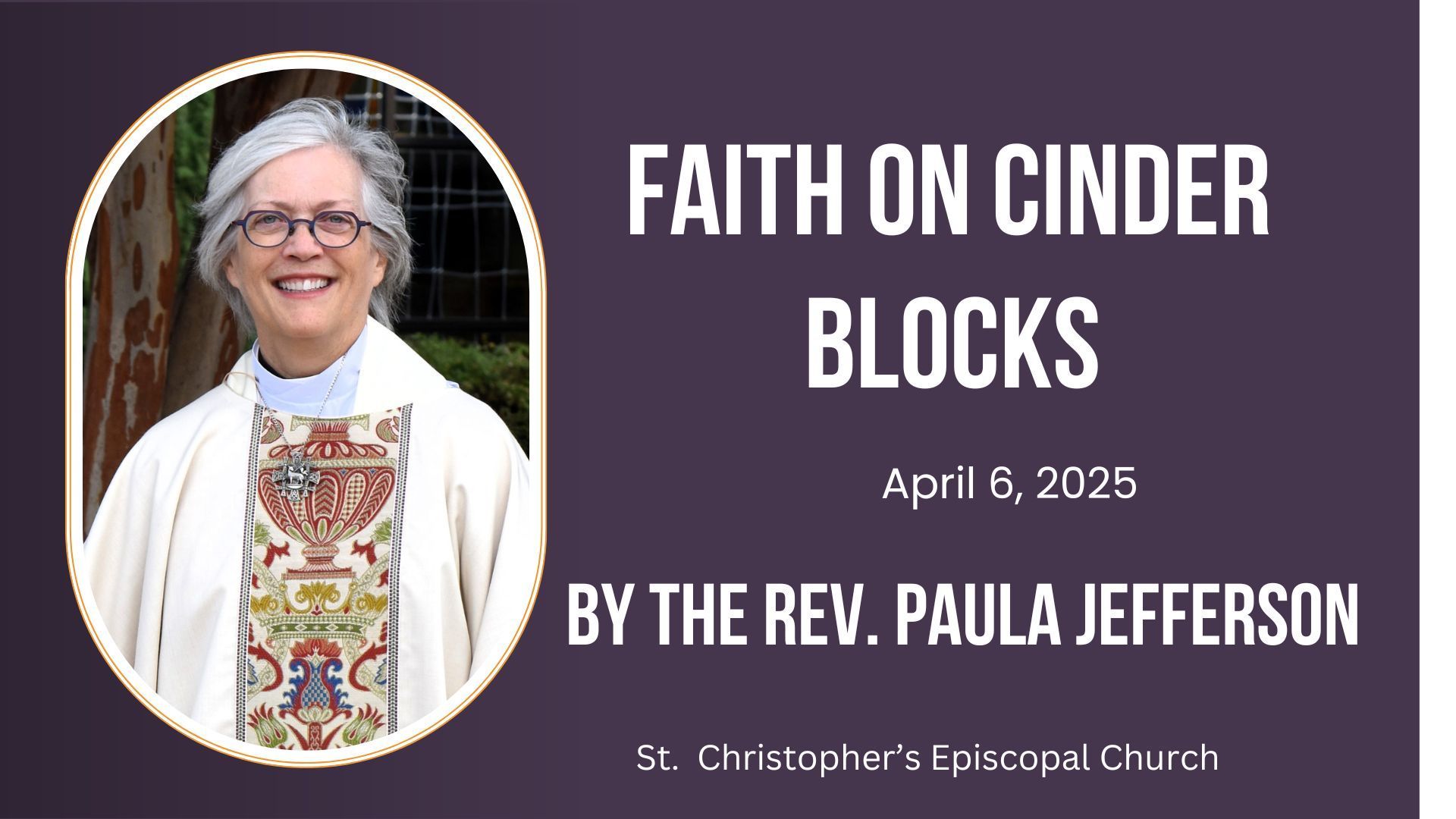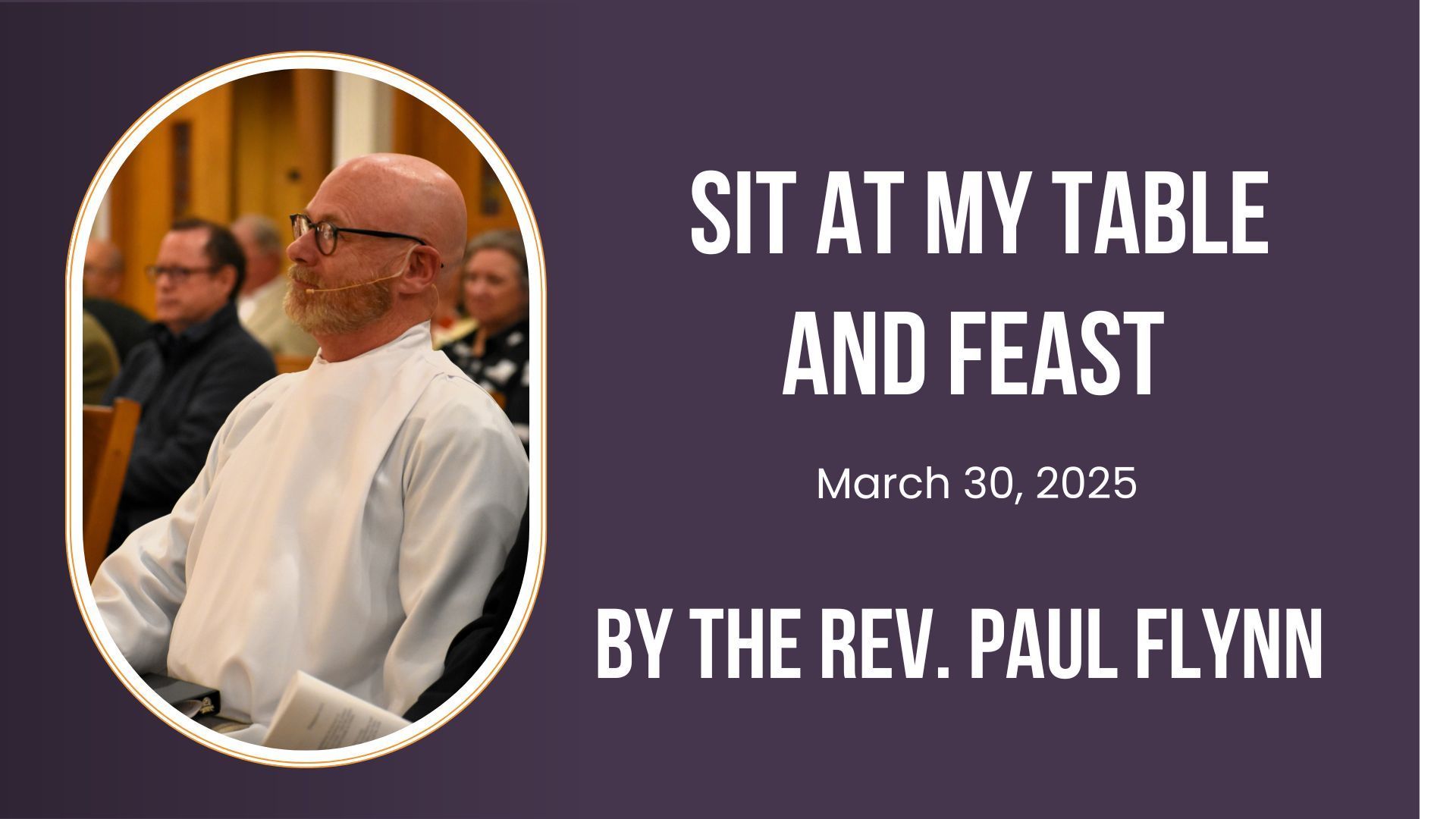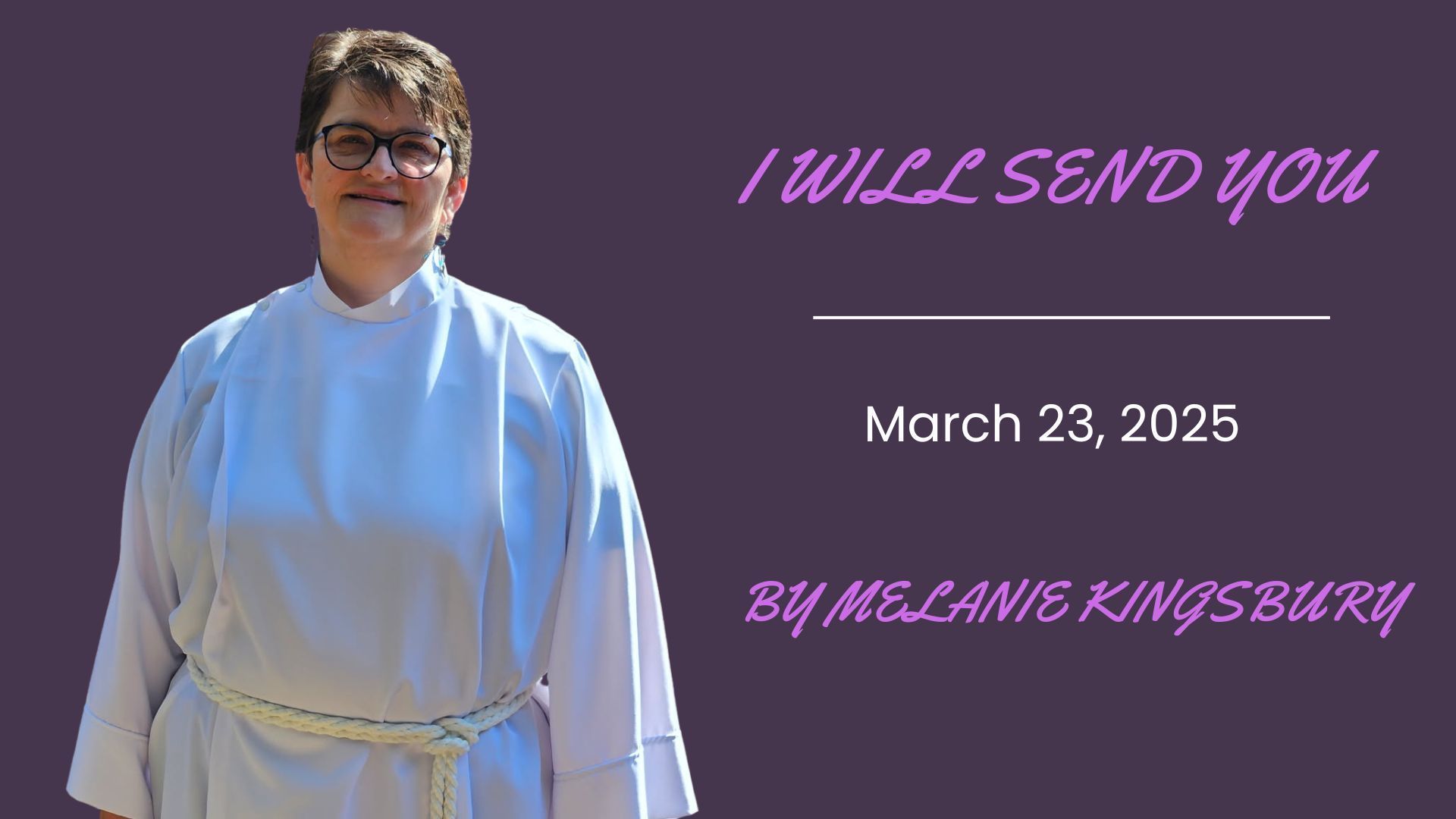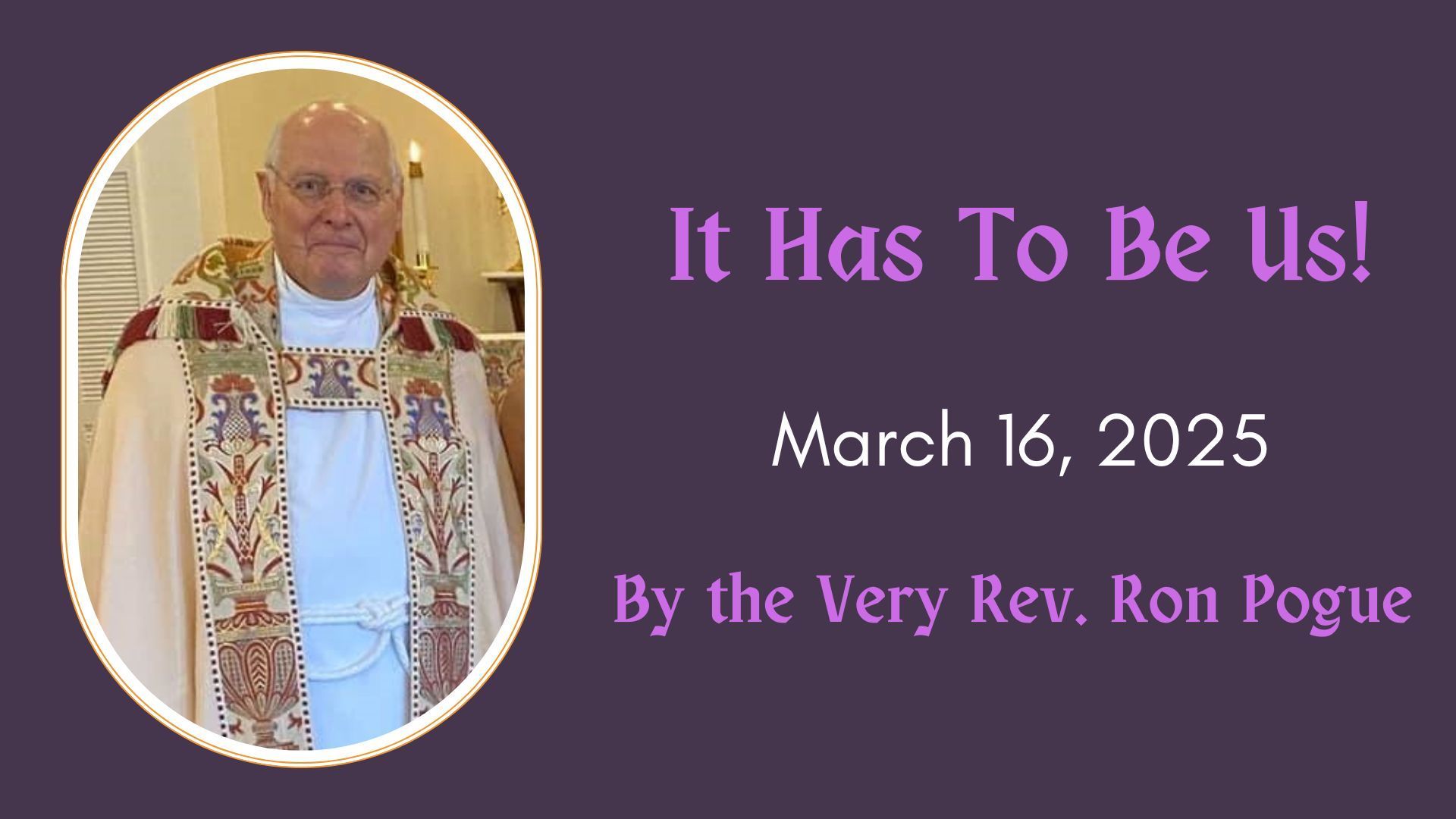A quote from God:
“Remember the sabbath day, and keep it holy.” Exodus 20:8
Many of you know that I’ll be hiking for 18 days this month. The bed in my guest room is overflowing with things going on the trip….dog essentials, hiking shoes, bug spray and sun screen, books, clothes, and my journal titled, “Paula’s Book of Mondays.”
The “Book of Mondays” began last September—a reminder to me that I needed to take one day a week off. Each week, I journaled on Monday evening…what did I do that day? How many hours did I do something other than work? Yesterday, I opened the journal to see how well I have observed a weekly sabbath day. The last entry was dated April 29th.
Keeping the sabbath is hard.
In today’s Gospel, we heard two very different interpretations of keeping the sabbath holy.
For the Pharisees, righteousness –or, doing that which is right--was the path to relationship with Yahweh. God gave 10 commandments to establish right relationship with humans. But by the time Jesus was born, humans had added another 600[1] laws to the list.
The intention of all these rules was good: the whole Israelite body was set aside to be God’s people. As a body, they were yoked with God. Righteousness of the whole body was essential to remain in right relationship with Yahweh.
But over time, the rules began to take on a life of their own. They became the focus of sabbath.
Jesus, his disciples, and the Pharisees are walking through grain fields on the sabbath. Some of the people with Jesus plucked the heads off grain and ate them. We don’t know why they ate from the wheat. Were they hungry? Were they idly gnawing on a stem as a farmer might?
The Pharisees see an action that is not lawful on the sabbath. This is not a 10 commandments kind of problem. It’s a violation of those 600 human-made rules.
Last week, I was thinking about my time in Colorado. I know that I will hike and read and share time with friends who live there. These are ways in which I experience sabbath. But, then I began to estimate the number of miles I’ll hike, how many books I needed to pack. Next, I was setting goals: 175 miles, an average of 10 miles per day, finish a book every three days, and on and on.
Eventually I stopped—it was beginning to feel overwhelming. All of these goals were becoming my focus—little by little, I was changing a holy sabbath into another kind of work.
And that is sinful.
Jesus entered a synagogue—on the sabbath. He saw a person with a deformed hand. To not have the use of both hands in Jesus’ time was oppressive. The man could not work in the fields, he could not fish, he could not do construction. He had no way to provide food or housing for his family.
The Pharisees are watching---What will Jesus do? Will he cure this man on the sabbath and thus violate the righteousness code? Their focus on the rules of righteousness blinded them to the holiness in front of them.
Jesus healed the man.
The Pharisees watched it happen: a man’s hand—and his life—restored to fullness. A miracle. But they did not see holiness in the moment. What they saw was the violation of a human-made righteousness law.
A quote from God:
"For in six days the Lord made heaven and earth, the sea, and all that is in them, but rested on the seventh day; therefore the Lord blessed the sabbath day and consecrated it." Exodus 20:11
Consecration means: “the action of making something sacred”. It is to take something profane—something of our secular world—and set it apart for God’s purpose. In our tradition—we usually think about consecration in the Eucharist; we bring forth the bread and wine from our world…place them on the Table; the Priest invites the Holy Spirit to consecrate them, to make them holy.
At the dawn of creation, God took something from our world—time—and God consecrated the 7th day. In today’s reading, Jesus said, “The sabbath was made for humankind.”
It is a gift to us from God. A gift we are free to choose.
I wondered this week, why is it so challenging to keep the sabbath? For six days of the week, we make our to do lists, and busy ourselves doing the work God calls us to do. In my generation, productivity and a strong work ethic are desirable. It is tempting to use that 7th day to catch up the things we just didn’t finish. Many are the Mondays when I have done just that.
But we give up something extraordinary.
Sabbath invites us into God’s way of being. To be free of clock-watching and a “to do list”…and, instead, to experience little microbursts of re-creation within us.
I wonder if keeping the sabbath is like training for heaven—where time does not exist; and we are immersed in the love and peace of God eternally.
A quote from God:
“Be still, and know that I am God!
I am exalted among the nations;
I am exalted in the earth.” Psalm 46:10
[1] https://davidtue.com/righteousness-and-the-law/


